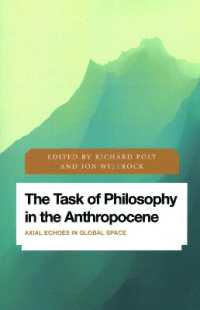Full Description
This book addresses the current issues of inclusive education during the time of the global pandemic of COVID-19. It offers inclusive pedagogical strategies and approaches for teachers and instructors to cater for the diverse learning needs of children in the midst of the pandemic.








